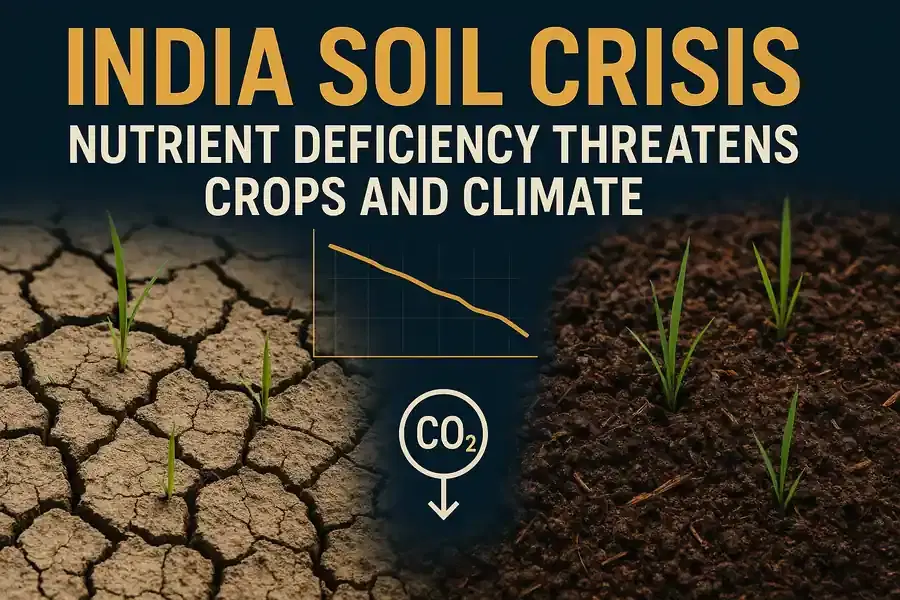Indian Soils Severely Deficient in Key Nutrients, Threatening Agriculture and Climate Goals
Agriculture
|
28th October 2025, 10:18 AM

▶
Short Description :
Detailed Coverage :
A recent study by the Centre for Science and Environment (CSE) has brought to light alarming deficiencies in Indian soils, revealing that a significant majority of tested samples are severely lacking in essential nutrients. According to the assessment, 64% of soil samples showed low levels of nitrogen, and 48.5% were low in organic carbon. These findings are based on government data collected under the Soil Health Card (SHC) scheme. The implications of this widespread nutrient deficiency are profound, potentially undermining sustainable agriculture by reducing crop productivity and hindering India's efforts to combat climate change, as healthy soils play a crucial role in sequestering atmospheric carbon. Experts, including Amit Khurana from CSE, expressed concerns that the current SHC scheme, launched in 2015, focuses too narrowly on 12 chemical parameters and has not reached a substantial portion of India's farming households. They advocate for a more comprehensive evaluation that includes physical and biological soil indicators, as recommended by international bodies like GLOSOLAN. The report also points to inefficiencies in current fertilizer application practices and the limited reach of organic farming initiatives. While biochar, a carbon-rich material produced from biomass pyrolysis, is identified as a promising solution to improve soil fertility and carbon storage, India currently lacks standardized protocols for its production. Impact: This situation poses a substantial threat to India's food security, potentially leading to reduced agricultural output, increased food prices, and reduced income for farmers. It also impacts national climate targets related to carbon sequestration. Rating: 8/10. Difficult Terms: Nitrogen: A key nutrient that is essential for plant growth, influencing leaf development and overall crop yield. Organic Carbon: Carbon derived from decomposed organic matter, which is crucial for maintaining soil structure, enhancing fertility, improving water retention, and supporting beneficial soil microorganisms. Climate Change Mitigation: Actions and strategies aimed at reducing the severity of climate change, primarily by lowering greenhouse gas emissions or increasing the capacity of natural sinks to absorb these gases. Sequester: The process of capturing and storing atmospheric carbon dioxide, for example, in soils or forests, to reduce its concentration in the atmosphere. Teragram: A unit of mass equal to one trillion grams (10^12 grams), often used to measure large quantities of substances like carbon. Sustainable Food Systems: A way of producing, distributing, and consuming food that protects the environment, is economically viable, and socially equitable, ensuring long-term food security for everyone. Soil Health Card (SHC) Scheme: A government program in India that provides farmers with detailed information about the nutrient content of their soil and recommendations for appropriate fertilizer use to improve soil health. Holistic Assessment: A comprehensive evaluation that considers all relevant aspects of a subject, such as the chemical, physical, and biological properties of soil, for a complete understanding. GLOSOLAN: Global Soil Laboratory Network, an initiative by the Food and Agriculture Organization of the United Nations (FAO) that aims to harmonize soil laboratory practices and data. Pyrolysis: A thermochemical process that decomposes organic materials at high temperatures in an oxygen-free environment, commonly used to produce biochar. Biochar: A form of charcoal produced by pyrolysis of biomass, which is then added to soil as an amendment to improve soil quality, water retention, and carbon sequestration.